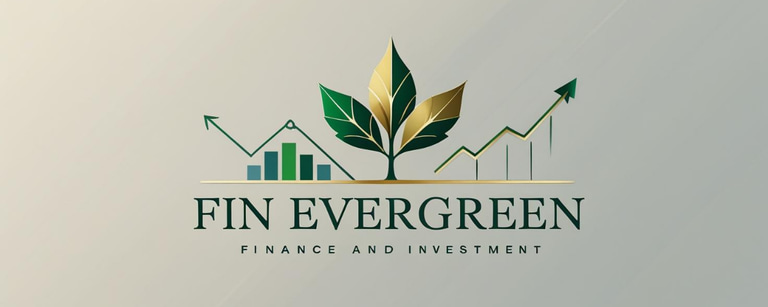How to Pay Off Debt Fast: Proven Strategies That Work
Struggling with debt? Learn how to pay off debt fast using proven strategies like the debt snowball, avalanche, and consolidation in 2025.
DEBT MANAGEMENT


Introduction: Why Debt Feels Like a Trap
Debt is one of the biggest financial challenges people face today. Credit cards, student loans, car payments, and personal loans can pile up until it feels impossible to get ahead. The truth is: you can pay off debt faster than you think—but it requires the right strategies and discipline.
This guide will walk you through practical debt repayment strategies, explain the pros and cons of each, and help you build a plan that fits your financial situation.
Step 1: Know Your Numbers
Before you can tackle debt, you need clarity:
List all debts: Include balance, interest rate, and minimum payment.
Total it up: Knowing the full amount can be painful but empowering.
Track interest: Identify which debts cost you the most over time.
Example:
Credit card: $5,000 @ 22% APR
Car loan: $10,000 @ 8% APR
Student loan: $15,000 @ 6% APR
Now you can decide how to prioritize them.
Step 2: The Debt Snowball vs. Avalanche
Two of the most popular payoff strategies are:
Debt Snowball Method
How it works: Pay off the smallest debt first, then roll payments into the next smallest.
Best for: Motivation — you see progress quickly.
Example: Pay off a $500 credit card before tackling a $5,000 one.
Debt Avalanche Method
How it works: Pay off the highest-interest debt first to save the most money.
Best for: Mathematically efficient payoff.
Example: Attack a 22% APR credit card before a 6% student loan.
Which is better?
If you need emotional wins, start with the snowball.
If you want maximum savings, avalanche is the way to go.
Step 3: Cut Expenses and Free Up Cash
Every extra dollar toward debt counts. Some fast ways to find cash:
Cancel unused subscriptions
Negotiate bills (internet, insurance, cell phone)
Cook at home instead of dining out
Sell unused items (Facebook Marketplace, eBay, Poshmark)
Pause luxury spending (vacations, clothes, entertainment)
Pro tip: Even an extra $200/month toward debt can shave years off repayment.
Step 4: Boost Income With a Side Hustle
Increasing income accelerates debt payoff:
Freelancing (Upwork, Fiverr, freelance writing, design, tutoring)
Gig apps (DoorDash, Instacart, Uber)
Selling digital products or services
Starting a small online side hustle (affiliate site, blog, YouTube channel)
Even part-time work earning $500/month extra can double your debt payments.
Step 5: Consider Debt Consolidation
Debt consolidation can simplify repayment if you’re juggling multiple balances. Options include:
Balance Transfer Credit Cards
Often offer 0% APR for 12–18 months
Best if you can pay off the balance during the promo period
Personal Loans
Fixed payments, lower interest than credit cards
Useful if you need structure
Home Equity Loan / HELOC
Lower interest, but risky (secured by your home)
Warning: Consolidation only works if you stop creating new debt. Otherwise, it’s a short-term fix.
Step 6: Automate and Stay Consistent
Automate payments: Never miss a due date
Round up payments: Pay $305 instead of $300 to build momentum
Use windfalls: Tax refunds, bonuses, or side hustle income should go directly to debt
Consistency is what separates successful debt-free journeys from stalled ones.
Step 7: Mindset Matters
Debt payoff isn’t just math—it’s psychological. Stay motivated by:
Tracking progress visually (spreadsheets, apps, debt payoff charts)
Celebrating small wins (but not with spending)
Joining communities (Reddit’s r/personalfinance, Facebook debt-free groups)
Remember: Every dollar you pay off is future freedom.
Frequently Asked Questions
1. How fast can I pay off debt realistically?
Depends on your income, expenses, and debt size. With focused effort, many people pay off tens of thousands in 2–5 years.
2. Should I save while paying off debt?
Keep a small emergency fund ($1,000–$2,000) first. After that, focus on debt repayment.
3. What’s worse: credit card or student loan debt?
Credit cards usually carry higher interest rates, making them more urgent to pay off.
4. Will debt payoff improve my credit score?
Yes. Lower utilization and consistent payments will gradually raise your score.
Conclusion: Your Path to Debt Freedom
Paying off debt fast is possible with the right approach. Whether you choose the debt snowball for motivation or the debt avalanche for savings, the key is consistency. Combine smarter spending, higher income, and focus—and you’ll free yourself from debt sooner than you think.
Start today. Your future self will thank you.
Fin Evergreen
Empowering you with financial knowledge and insights.
© 2025 Finevergreen — For educational purposes only, not financial advice. By using this site, you agree that we may use cookies and affiliate links (at no extra cost to you). We are not responsible for financial outcomes or third-party content. Please consult a licensed professional before making investment or financial decisions.
Contact: support@finevergreen.com
